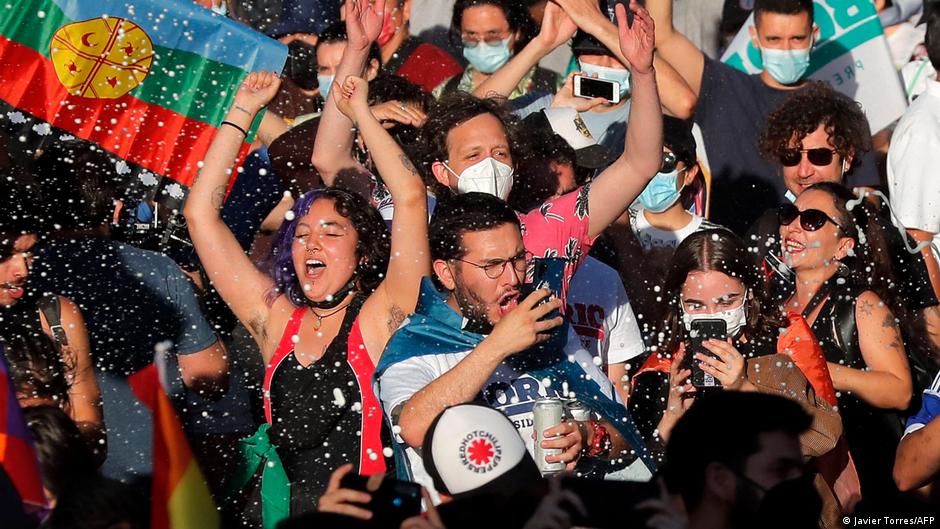In what was expected to be a tight race, the 35-year-old former student protest leader defeated his far-right rival José Antonio Kast by 10 points.
Mr Boric told supporters he would look after democracy, promising curbs on Chile’s neoliberal free market economy.
He will lead a country that has been rocked in recent years by mass protests against inequality and corruption.
Mr Boric’s victory prompted celebrations on the streets of the capital Santiago, with his supporters waving flags and honking car horns.
In his speech, Mr Boric said he was taking on the job with humility and a “tremendous sense of responsibility”, vowing to “firmly fight against the privileges of a few”.
Both candidates offered starkly different visions for the country, and both are outsiders representing political parties that have never been in government.

Once the most stable economy in Latin America, Chile has one of the world’s largest income gaps, with 1% of the population owning 25% of the country’s wealth, according to the United Nations.
Mr Boric has promised to address this inequality by expanding social rights and reforming Chile’s pension and healthcare systems, as well as reducing the work week from 45 to 40 hours, and boosting green investment.
“We know there continues to be justice for the rich, and justice for the poor, and we no longer will permit that the poor keep paying the price of Chile’s inequality,” he said.
The president-elect also promised to block a controversial proposed mining project which he said would destroy communities and the national environment.
Investors are worried stability and profits will suffer as a result of higher taxes and tighter government regulation of business.


